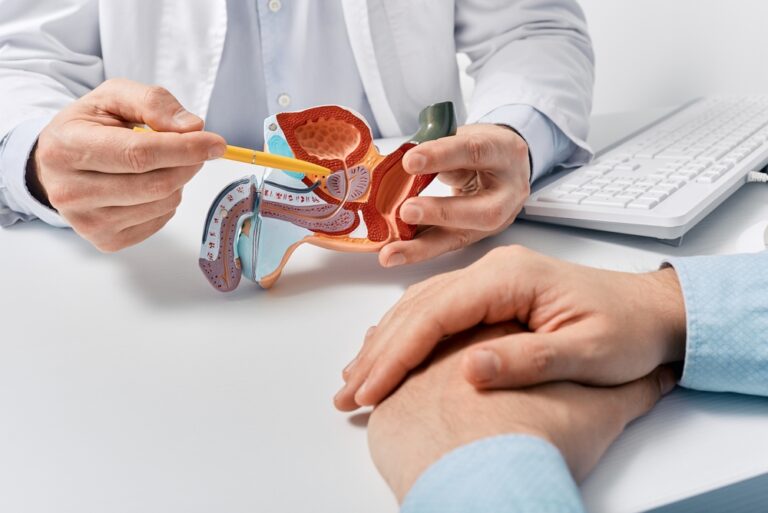The Simple Lifestyle Changes That Can Make a Big Difference for Your Libido

Understanding the Role of Lifestyle in Libido Enhancement

In the quest for a satisfying intimate life, the role of lifestyle should not be overlooked. Making healthy choices in various aspects of life can have a significant impact on enhancing libido. Several factors, including sleep quality, exercise regimen, stress management, and diet, can either support or hinder sexual desire.
Quality sleep is vital for overall well-being, including sexual health. Research suggests that sleep deprivation can lead to a decline in libido and sexual satisfaction. Prioritizing sufficient sleep can help regulate hormone levels, reduce fatigue, and increase energy levels, all of which contribute to a healthier libido. Additionally, establishing a consistent sleep routine and creating a conducive sleep environment can further optimize sleep quality.
Prioritizing Quality Sleep for a Healthier Libido

Sleep plays a crucial role in maintaining a healthy libido. When we prioritize quality sleep, we are giving our bodies the opportunity to regenerate and restore essential functions, including our sexual drive. Research has shown that sleep deprivation can negatively impact both male and female sexual desire and function.
One study conducted on men found that those who experienced poor sleep had lower levels of testosterone, a hormone that plays a key role in sexual desire. Additionally, inadequate sleep can lead to increased levels of stress hormones, such as cortisol, which can further dampen libido.
To enhance the quality of your sleep and promote a healthier libido, it is important to establish a consistent sleep schedule and create a sleep-friendly environment. This includes keeping your bedroom cool, dark, and quiet, as well as limiting electronic devices before bedtime. Implementing relaxation techniques, such as deep breathing exercises or meditation, can also help calm the mind and prepare the body for restful sleep. Prioritizing quality sleep is an often overlooked yet vital aspect of supporting a thriving libido.
The Impact of Regular Exercise on Sexual Desire

Regular exercise not only contributes to overall physical health but also plays a significant role in enhancing sexual desire. Engaging in a consistent exercise routine can have a positive impact on your libido, bringing numerous benefits to your sexual health. Exercise promotes the release of endorphins, which are natural mood boosters, helping to reduce stress and anxiety levels. These factors can directly affect sexual desire, making regular physical activity an essential aspect of maintaining a healthy libido.
In addition to the mental and emotional benefits, exercise also improves cardiovascular health, increases blood flow, and promotes better circulation throughout the body. This improved blood flow has a direct effect on sexual function, as it enhances the body’s ability to achieve and maintain arousal. Furthermore, exercise can improve muscle tone and strength, leading to increased stamina and endurance during sexual activity. Overall, incorporating regular exercise into your routine can have a profound impact on your sexual desire and performance, enhancing your overall sexual experience.
Balancing Stress Levels to Boost Your Libido
High levels of stress can be detrimental to various aspects of our health, including our sexual desire and libido. When we are constantly stressed, our bodies produce more cortisol, known as the stress hormone. This increase in cortisol can lead to a decrease in testosterone levels, which are essential for maintaining a healthy libido in both men and women. Additionally, stress can affect our mood, energy levels, and overall well-being, making it difficult to feel or initiate sexual desire.
Finding effective ways to balance stress levels is crucial for boosting libido. One approach is to incorporate stress-relieving activities into your daily routine. This can include practices such as meditation, deep breathing exercises, or engaging in hobbies that bring joy and relaxation. Taking time to prioritize self-care and managing stress can have a positive impact on your overall well-being, which in turn can enhance your libido.
It is important to note that chronic stress and its impact on libido may require professional intervention. If you are experiencing severe stress or are having ongoing issues with your libido, it is advisable to consult a healthcare provider or a gynecologist. They can provide expert advice, conduct necessary tests, and offer appropriate treatment options tailored to your specific needs. Remember, addressing stress not only benefits your libido but also contributes to your overall health and quality of life.
Nourishing Your Body with a Libido-Boosting Diet
The foods we consume play a crucial role in our overall health, and this includes our sexual health. Nourishing your body with a libido-boosting diet can have a positive impact on your sexual desire and performance. While there is no magic food that will instantly increase your libido, incorporating certain nutrients into your diet can help support a healthy sex drive.
One nutrient that has been linked to enhanced libido is zinc. Zinc is involved in the production of testosterone, a hormone that plays a key role in sexual desire for both men and women. Foods rich in zinc include oysters, beef, pumpkin seeds, and spinach. Another vital nutrient for libido is omega-3 fatty acids. These healthy fats can improve blood flow and promote hormonal balance. You can find omega-3s in fatty fish like salmon, flaxseeds, and chia seeds. Additionally, incorporating aphrodisiac foods like avocados, dark chocolate, and strawberries into your diet can add a touch of romance to your meals while potentially boosting your libido.
It is important to remember that a balanced and varied diet is key to overall health, and the same applies to your sexual health. While these foods may support a healthy libido, they should not be considered a cure-all solution. If you are experiencing persistent issues with your libido, it is always a good idea to consult with a healthcare provider who can provide personalized advice and guidance. Remember, a holistic approach to sexual health includes not only diet but also a range of other factors such as exercise, stress management, and open communication with your partner.
Certainly! Here’s information on nourishing your body with a libido-boosting diet presented in a table format:
| Nourishing Your Body with a Libido-Boosting Diet | Key Nutrients and Libido-Boosting Foods |
|---|---|
| Zinc | – Role: Essential for testosterone production. |
| – Libido-Boosting Foods: Oysters, beef, pumpkin seeds, cashews, chickpeas. | |
| Vitamin D | – Role: Supports overall sexual health and hormone regulation. |
| – Libido-Boosting Foods: Fatty fish (e.g., salmon, mackerel), fortified dairy. | |
| Omega-3 Fatty Acids | – Role: Improve blood flow and support cardiovascular health. |
| – Libido-Boosting Foods: Fatty fish, flaxseeds, chia seeds, walnuts. | |
| Fruits and Vegetables | – Role: Rich in antioxidants, supporting overall health. |
| – Libido-Boosting Foods: Berries, citrus fruits, spinach, kale, broccoli. | |
| Nuts and Seeds | – Role: Provide essential fatty acids and minerals. |
| – Libido-Boosting Foods: Almonds, walnuts, sunflower seeds, pumpkin seeds. | |
| Lean Protein | – Role: Essential for overall health and energy. |
| – Libido-Boosting Foods: Chicken, turkey, lean beef, tofu, legumes. | |
| Whole Grains | – Role: Complex carbohydrates provide sustained energy. |
| – Libido-Boosting Foods: Quinoa, brown rice, oats, whole wheat. | |
| Dark Chocolate | – Role: Contains compounds that may enhance mood. |
| – Libido-Boosting Foods: Dark chocolate with high cocoa content. | |
| Watermelon | – Role: Contains citrulline, which may have vasodilatory effects. |
| – Libido-Boosting Foods: Fresh watermelon. | |
| Avocado | – Role: Contains healthy fats and may promote overall well-being. |
| – Libido-Boosting Foods: Avocado. | |
| Green Tea | – Role: Contains antioxidants and may have positive effects on mood. |
| – Libido-Boosting Foods: Green tea. | |
| Ginseng | – Role: Traditional aphrodisiac with potential libido-enhancing properties. |
| – Libido-Boosting Foods: Ginseng tea or supplements. | |
| Spices (e.g., Saffron) | – Role: Some spices are believed to have aphrodisiac properties. |
| – Libido-Boosting Foods: Dishes containing saffron or other spices. | |
| Herbs (e.g., Maca) | – Role: Traditional use as an aphrodisiac; may support sexual function. |
| – Libido-Boosting Foods: Maca root powder. |
The Influence of Alcohol and Substance Use on Libido
Alcohol and substance use can have a significant impact on libido in both men and women. While many people believe that these substances can enhance sexual experiences, the reality is quite different.
First and foremost, alcohol is a central nervous system depressant, which means it can dampen sexual desire and impair sexual function. It can decrease testosterone levels in both men and women, leading to a decrease in libido. Additionally, excessive alcohol consumption can disrupt the balance of hormones that regulate sexual function and arousal, further contributing to a decrease in sexual desire.
Substance use, including illicit drugs, can also have detrimental effects on libido. Some drugs, such as opioids and amphetamines, can interfere with the body’s natural hormonal balance, leading to decreases in sexual desire and performance. Furthermore, substance abuse can often lead to psychological issues such as anxiety, depression, and relationship problems, which can further negatively impact libido.
It is important to note that the effects of alcohol and substance use on libido can vary depending on the individual and the specific substance being consumed. However, it is generally recommended to limit or avoid the use of alcohol and substances if you are looking to improve your libido and sexual health. It is always best to seek professional help and guidance if you are struggling with substance abuse or experiencing significant changes in your libido.
Exploring the Connection Between Libido and Body Weight
Individuals often overlook the connection between body weight and libido, but it is an important aspect to consider when addressing sexual health. Body weight can affect hormone levels, blood flow, and self-esteem, all of which play a role in sexual desire and performance.
Excess body weight, specifically obesity, has been shown to have a negative impact on libido. A study published in the Journal of Sexual Medicine found that obese men and women reported lower sexual desire and satisfaction compared to their counterparts with a healthy weight. Obesity can lead to hormonal imbalances, such as decreased testosterone levels in men, which can directly affect libido. It can also contribute to poor blood circulation, reducing sexual arousal and performance.
On the other hand, being underweight can also lead to a decrease in libido. Low body weight often results in decreased levels of sex hormones, such as estrogen and testosterone, which are essential for sexual desire. Additionally, underweight individuals may experience psychological effects, such as body image concerns and low self-esteem, which can further impact their libido.
Achieving and maintaining a healthy body weight is crucial for promoting a thriving libido. By incorporating a balanced diet and engaging in regular physical activity, individuals can enhance their overall health and positively influence their sexual desire. However, it is important to consult with a healthcare provider before making any significant changes to ensure personalized and safe recommendations.
Harnessing the Power of Mindfulness and Meditation for a Stronger Libido
Mindfulness and meditation are two powerful practices that can have a positive impact on various aspects of our health, including our libido. By incorporating mindfulness and meditation into your daily routine, you can tap into a deeper sense of awareness and connection with your body, ultimately leading to a stronger libido.
Mindfulness involves being fully present and engaged in the present moment, without judgment or distraction. By practicing mindfulness during intimate moments, you can cultivate a heightened sense of pleasure and enjoyment. Additionally, mindfulness can help reduce stress and anxiety, which are often barriers to sexual desire and satisfaction.
Meditation, on the other hand, has been shown to improve overall well-being and reduce stress levels. When it comes to libido, stress can be a major roadblock, as it interferes with hormonal balance and can dampen sexual desire. By incorporating regular meditation into your daily routine, you can help balance your stress levels and create a more conducive environment for a thriving libido.
Incorporating mindfulness and meditation into your daily routine doesn’t have to be complicated. You can start by setting aside a few minutes each day to sit in silence, focusing on your breath and observing any sensations in your body. Over time, you can gradually increase the duration of your practice and explore different meditation techniques that resonate with you. With consistency and patience, harnessing the power of mindfulness and meditation can bring about significant improvements in your libido and overall sexual health.
The Surprising Benefits of Adequate Hydration on Sexual Health
Adequate hydration is often overlooked when it comes to sexual health, but it plays a crucial role in maintaining a healthy libido. Water is essential for the proper functioning of all bodily systems, including the reproductive system. When you are dehydrated, your body cannot function optimally, which can negatively impact your sexual desire and performance.
One of the key benefits of staying hydrated is improved blood flow. When you are adequately hydrated, your blood volume increases, allowing for better circulation throughout your body, including your genital area. This increased blood flow enhances sensitivity, arousal, and overall sexual pleasure. Additionally, proper hydration helps to prevent vaginal dryness, a common condition that can affect women’s sexual satisfaction. By drinking enough water, you can ensure that your body produces sufficient lubrication for a more enjoyable and comfortable sexual experience.
To optimize your hydration levels, it is recommended to consume at least eight glasses of water per day. It is important to note that other beverages, such as fruit juices or caffeine, should not substitute for water as they may contain added sugars or diuretic properties that can dehydrate your body. For those who find it challenging to drink enough water throughout the day, incorporating fruits and vegetables with high water content, such as watermelon, cucumber, or oranges, can serve as additional sources of hydration.
In conclusion, staying properly hydrated is not only crucial for general health but also has surprising benefits for sexual health. By ensuring adequate hydration, you can improve blood flow, prevent vaginal dryness, and enhance overall sexual pleasure. It is essential to prioritize hydration as part of a holistic approach to maintaining a thriving libido.
Creating an Intimate and Supportive Relationship Environment
Creating an intimate and supportive relationship environment plays a crucial role in maintaining a thriving libido. When it comes to sexual desire, it’s important to remember that it is not solely dependent on physical factors. Emotional and psychological aspects of a relationship can heavily influence one’s libido.
In a healthy relationship, open communication, trust, and emotional connection are the cornerstones for building intimacy. Taking the time to understand each other’s needs and desires can create a safe space to explore and express one’s sexuality. Showing empathy, love, and affection outside the bedroom can foster a deeper connection and create an environment where both partners feel valued and desired. Additionally, addressing any underlying relationship conflicts or unresolved issues can help alleviate stress and promote a more satisfying sexual experience. By nurturing and prioritizing a supportive relationship environment, couples can lay a foundation for a flourishing and satisfying libido.
The Importance of Open Communication for a Thriving Libido
Effective communication is a cornerstone of any healthy relationship, and this holds true when it comes to maintaining a thriving libido. Open and honest communication between partners can contribute significantly to a fulfilling and satisfying sexual life. By discussing desires, concerns, and boundaries, couples can create a safe space to explore their intimacy, leading to increased arousal and enjoyment.
One of the key benefits of open communication is the ability to address any underlying psychological or emotional factors that may be affecting one’s libido. Stress, anxiety, relationship issues, and even past traumas can all have a profound impact on sexual desire. By openly discussing these concerns, both partners can work together to find solutions and provide the necessary support for each other. Moreover, communicating openly about sexual desires and fantasies can enhance intimacy and allow couples to explore new experiences that can further ignite their passion.
(article continues)
Uncovering the Impact of Medications on Sexual Desire
Many individuals may not realize that certain medications can have a significant impact on sexual desire. The use of medications for various health conditions can sometimes result in a decrease in libido, leading to sexual dissatisfaction and strain on relationships. It is vital for individuals to be aware of the potential effects that medications can have on their sexual health and to have open conversations with their healthcare providers to address any concerns.
One category of medications that can have a profound impact on sexual desire is antidepressants. Selective serotonin reuptake inhibitors (SSRIs), which are commonly prescribed for depression and anxiety disorders, are known to cause sexual side effects, including a decrease in libido and difficulty reaching orgasm. It is important for individuals taking these medications to speak with their healthcare providers about the potential impact on their sexual health, as adjustments to the dosage or switching to an alternative medication may be considered. Additionally, non-pharmacological approaches, such as therapy or counseling, may also be recommended to address any sexual concerns.
Understanding the Role of Hormones in Libido and How to Maintain Balance
The role of hormones in libido is a complex interplay of various factors within the body. Hormones such as testosterone, estrogen, progesterone, and dopamine play critical roles in sexual desire and function. Testosterone, often considered the “male hormone,” is also present in females in smaller amounts. It is responsible for stimulating sexual desire and promoting healthy erectile function in men. Additionally, testosterone plays a role in maintaining bone density, muscle mass, and overall vitality, which can indirectly affect libido.
On the other hand, estrogen and progesterone, known as the “female hormones,” are crucial for regulating the menstrual cycle and promoting healthy reproductive function in women. They too have a role in sexual desire and arousal. Fluctuations in hormone levels, such as those experienced during menopause, can lead to decreased libido and sexual function.
Maintaining a balance of hormones is crucial for a healthy libido. Chronic stress, lack of exercise, poor diet, and certain medical conditions can disrupt hormone levels and negatively impact sexual desire. Regular exercise, adequate sleep, and stress reduction techniques such as mindfulness and meditation can help maintain hormonal balance. Proper nutrition, especially a diet rich in fruits, vegetables, and essential fatty acids, can also support optimal hormone production and function.
In summary, understanding the role of hormones in libido is vital for optimizing sexual health. Maintaining hormonal balance through lifestyle changes, including exercise, sleep, stress management, and proper nutrition, can contribute to a healthier and more fulfilling sex life. As with any medical issue, it is always advisable to consult with a healthcare provider for personalized guidance and treatment options.
Seeking Professional Help: When to Consult a Healthcare Provider for Libido Issues
When faced with persistent libido issues, it may be time to seek professional help from a healthcare provider. It is important to remember that low libido can have various underlying causes, such as hormonal imbalances, medication side effects, psychological factors, or underlying health conditions. A healthcare provider specializing in sexual health can help determine the root cause of the issue and create a personalized treatment plan.
One of the signs that it might be time to consult a healthcare provider is when the decrease in libido is causing distress or strain on your relationships. Persistent low libido can have a significant impact on your emotional well-being and the overall quality of your life. By seeking professional help, you can gain insight into the underlying factors contributing to your libido issues and explore potential solutions, whether they involve lifestyle changes, medication adjustments, or therapy.
In conclusion, if you are experiencing ongoing struggles with your libido that are affecting your overall well-being, it may be beneficial to consult a healthcare provider who specializes in sexual health. They can provide a comprehensive assessment, address any underlying issues, and guide you towards a personalized treatment plan. Remember, there is no need to suffer in silence as there are professionals available to help you navigate this sensitive issue and improve your sexual health.
What role does lifestyle play in enhancing libido?
Lifestyle factors such as quality sleep, regular exercise, stress management, a libido-boosting diet, and maintaining a healthy body weight can all contribute to enhancing libido.
How does quality sleep impact libido?
Quality sleep is crucial for a healthier libido. Lack of sleep can lead to fatigue and decreased sexual desire. Prioritizing good sleep hygiene and ensuring adequate rest can help improve libido.
What is the impact of regular exercise on sexual desire?
Regular exercise can increase blood flow, improve stamina, and release endorphins, all of which can positively impact sexual desire. Engaging in physical activity regularly can help boost libido.
How can balancing stress levels boost libido?
High levels of stress can negatively affect libido. Implementing stress management techniques, such as mindfulness and meditation, can help reduce stress and improve sexual desire.
How can a libido-boosting diet nourish the body?
Consuming a diet rich in libido-boosting foods, such as fruits, vegetables, whole grains, and lean proteins, can provide essential nutrients that support sexual health and enhance libido.
What is the influence of alcohol and substance use on libido?
Excessive alcohol and substance use can impair sexual function and decrease libido. Limiting or avoiding these substances can help improve sexual desire.
Is there a connection between libido and body weight?
Yes, body weight can influence libido. Both obesity and being underweight can contribute to decreased sexual desire. Maintaining a healthy body weight can help support a healthier libido.
How can mindfulness and meditation contribute to a stronger libido?
Mindfulness and meditation practices can help reduce stress, increase self-awareness, improve body image, and enhance overall sexual well-being, all of which can lead to a stronger libido.
What are the surprising benefits of adequate hydration on sexual health?
Staying adequately hydrated can help maintain healthy blood flow, lubrication, and overall sexual function. Hydration plays a crucial role in supporting sexual health and a thriving libido.
How can creating an intimate and supportive relationship environment impact libido?
A supportive and intimate relationship environment can help build trust, emotional connection, and intimacy, all of which can positively impact libido and sexual desire.
Why is open communication important for a thriving libido?
Open communication with your partner about sexual desires, concerns, and preferences can foster a healthier sexual relationship and contribute to a thriving libido.
What is the impact of medications on sexual desire?
Certain medications, such as antidepressants, hormonal contraceptives, and blood pressure medications, may have side effects that can affect sexual desire. Consulting a healthcare provider can help address these issues.
How do hormones affect libido, and how can balance be maintained?
Hormonal imbalances, such as low testosterone or estrogen levels, can impact libido. Maintaining hormonal balance through proper medical guidance can help support a healthier libido.
When should I consult a healthcare provider for libido issues?
If you experience persistent or significant changes in libido that are causing distress or affecting your quality of life, it is advisable to consult a healthcare provider. They can help identify any underlying causes and provide appropriate treatment options.






